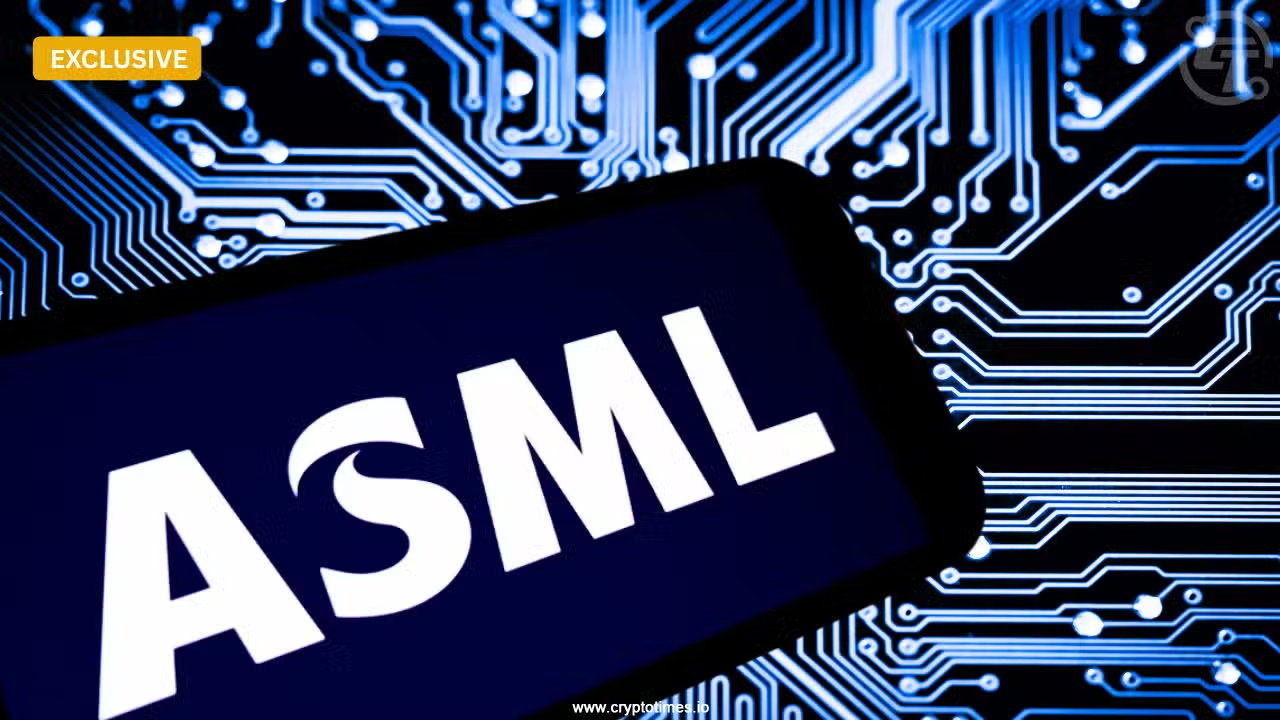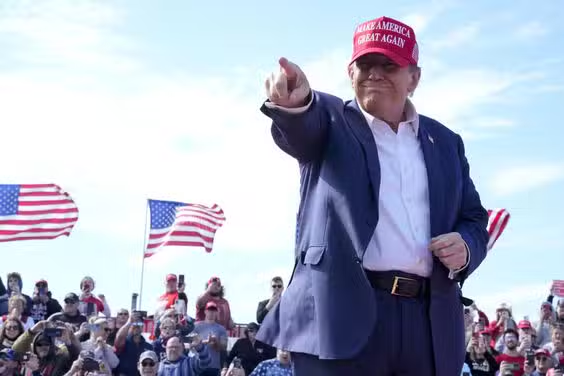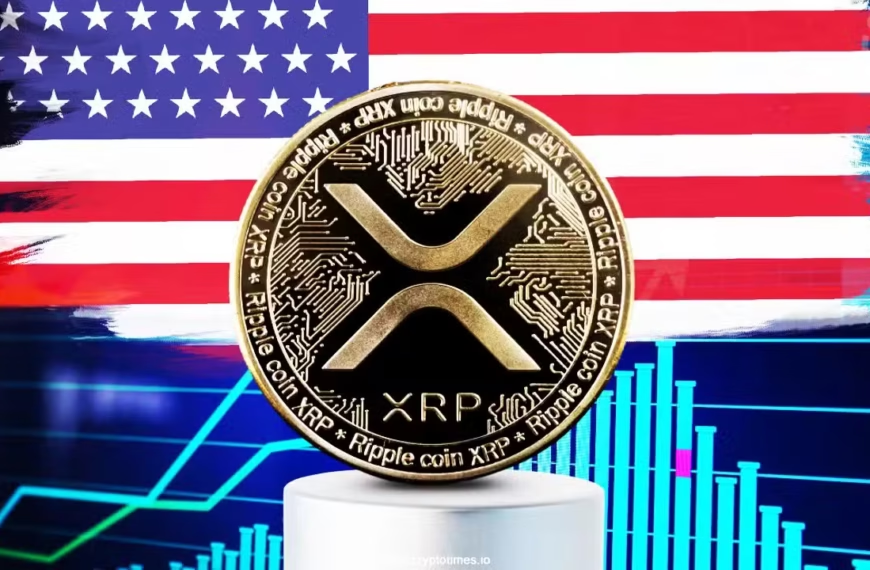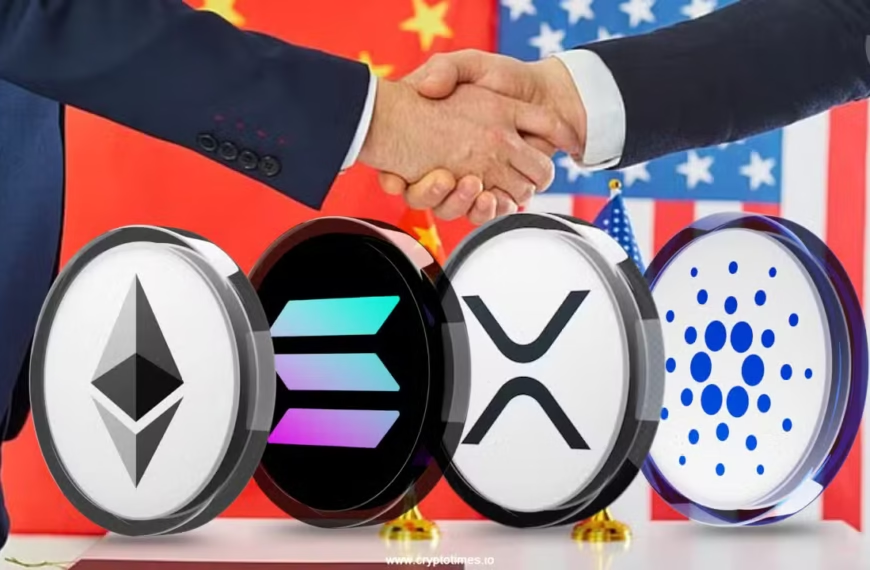While everyone’s talking about big AI breakthroughs, there’s a quieter story most people miss: one that starts in a small Dutch town called Veldhoven. That’s where ASML, a $300 billion company, is quietly powering the entire AI revolution from behind the scenes.

Despite the dominance of U.S. tech giants and growing Chinese ambitions, it’s ASML’s machines, massive, intricate, and nearly irreplaceable, that make today’s most advanced chips possible.
These machines, known as lithography systems, are essential for producing the semiconductors found in everything from smartphones to massive AI data centers. Each of ASML’s machines can cost up to $400 million and is about as long as a train car.

Big names like Nvidia, Microsoft, and OpenAI depend on these machines to make the advanced AI chips powering today’s breakthroughs. Without ASML, AI development would slow down a lot.
Because these machines are so important, ASML has gotten caught up in global political conflicts. From tariffs and export bans to political instability in Europe and rising tensions between the U.S. and China, this Dutch company is right at the heart of a major geopolitical battle.
How ASML Became the Core of AI
Since starting in the 1980s, ASML has spent years refining its lithography technology. Their most advanced machines use extreme ultraviolet (EUV) light to carve tiny, nanoscale patterns onto silicon wafers.
This technique lets chipmakers fit billions of transistors onto a single chip, and these transistors give AI models the power to learn, adapt, and create new things.


Chris Miller, a professor at Tufts University and author of “Chip War,” summed it up best: “It’s the most complex machine humans have ever created, drawing on a supply chain that stretches across Europe, the United States and Asia, and harnesses fields like material science, physics, manufacturing, design and optics.”
ASML’s supply chain is an international web of thousands of contributors, from mirror makers in Germany to laser specialists in the U.S. The company doesn’t just manufacture tools; it brings together the world’s leading minds and materials to build machines no one else can.
The rise of AI has driven demand for these machines even higher. In 2023, ASML posted record revenue of $32.3 billion. Projections suggest that the figure could reach as much as $65 billion by the end of the decade.
Politics Disrupting Progress
But recent developments have cast a shadow over this growth. Christophe Fouquet, ASML’s CEO, has had to deal with an escalating series of political challenges.


“Seemingly every week,” Fouquet finds himself navigating fresh political turbulence. Just last month, former U.S. President Donald Trump imposed a 50% tariff on European imports, only to walk it back two days later. Still, the move shook investor and client confidence, especially as some of ASML’s key components are shipped to the U.S.
At the same time, the Netherlands’ foreign minister was in Beijing, engaged in sensitive talks about possibly lifting bans that prevent Chinese firms from acquiring ASML’s top-tier equipment. Before anything could be finalized, the Dutch government collapsed, halting negotiations entirely.


This swirl of instability isn’t just bureaucratic noise. Every political shift, every new restriction, has the potential to disrupt ASML’s supply chain or customer base.
Caught in the Crossfire Between Giants
ASML’s unique position has made it a geopolitical chess piece. The U.S. government, particularly under both Trump and Biden, has pushed hard to limit China’s access to advanced technology.
In 2019, the Trump administration successfully pressured the Netherlands to block exports of ASML’s EUV systems to China. More recently, the Biden administration expanded those restrictions to include even older models.


As a result, ASML’s revenue from China has fallen significantly. “After trade restrictions,” the company expects sales to China to fall to about 25% of its annual revenue from nearly half in the second quarter of last year.










